“New evidence” comes at us fast in Transfusion Medicine. Rich Haspel says, “let’s look before we leap!”
NOTE: Continuing Education credit for this episode has expired. See below for details.
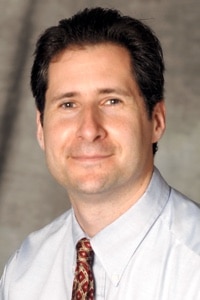
Dr. Rich Haspel
Willing to Debate
Dr. Rich Haspel is known for his willingness to speak frankly about the quality of published data, and for cautioning, “not so fast,” when questions still need to be answered before widespread acceptance of new practice principles. In this interview, Dr. Haspel outlines his approach to evaluating the literature and gives practical steps to help learners do the same. The second half of the interview involves a discussion on the state of the evidence on a particularly “hot” topic: The use of “Low-titer Group O Whole Blood (LTOWB)” in trauma transfusion.
Full Disclosure
This interview, frankly, puts me in a very interesting position as a host. As long-time listeners know, I have discussed LTOWB previously on this podcast, especially with Dr. Mark Yazer (episodes 040 and 091). I respect both of these physicians enormously, and consider them friends, and yet, there is some pretty strong disagreement between them about the LTOWB issue. My advice to you as a learner: Focus on the evidence, take time to read it, and decide what you think for yourself! I mention where I land at the end of the episode, but that’s beside the point: We all need to learn to evaluate the evidence and not just accept things blindly.

Dr. Rich Haspel
Willing to Debate
Dr. Rich Haspel is known for his willingness to speak frankly about the quality of published data, and for cautioning, “not so fast,” when questions still need to be answered before widespread acceptance of new practice principles. In this interview, Dr. Haspel outlines his approach to evaluating the literature and gives practical steps to help learners do the same. The second half of the interview involves a discussion on the state of the evidence on a particularly “hot” topic: The use of “Low-titer Group O Whole Blood (LTOWB)” in trauma transfusion.
Full Disclosure
This interview, frankly, puts me in a very interesting position as a host. As long-time listeners know, I have discussed LTOWB previously on this podcast, especially with Dr. Mark Yazer (episodes 040 and 091). I respect both of these physicians enormously, and consider them friends, and yet, there is some pretty strong disagreement between them about the LTOWB issue. My advice to you as a learner: Focus on the evidence, take time to read it, and decide what you think for yourself! I mention where I land at the end of the episode, but that’s beside the point: We all need to learn to evaluate the evidence and not just accept things blindly.
About My Guest:
Dr. Rich Haspel received his Bachelor of Science degree from Stanford University, his PhD in Molecular Cell Biology from Rockefeller University, and his MD from Cornell University. He completed an internship in medicine and a residency in clinical pathology at Brigham and Women’s Hospital in Boston. He received his fellowship training in Transfusion Medicine at Massachusetts General Hospital. Dr. Haspel is currently a Transfusion Medicine physician, Medical Director of the Stem Cell Processing Laboratory, and the Vice Chair for Medical Education in the Department of Pathology at Beth Israel Deaconess Medical Center. He is also a Professor of Pathology at Harvard Medical School. Dr. Haspel’s primary academic focus is medical education. He has received NIH funding to facilitate the work of a national committee in developing a genomics curriculum for pathology residents. He has led international studies to evaluate internal medicine resident, hematology fellow, and pediatric resident Transfusion Medicine knowledge using validated surveys and exams. He is also very interested in how best to teach critical evaluation of the medical literature and has published a transfusion medicine evidence-based curriculum.
Continuing Education Expired
This podcast episode offered continuing education credit for two years from its release date, but is no longer eligible for such credit.
There are currently no episodes of Blood Bank Guy Essentials eligible for continuing education credit, but check back soon!
DISCLAIMER: The opinions expressed on this episode are those of my guest and I alone, and do not reflect those of the organizations with which either of us is affiliated. Neither Dr. Haspel nor I have any relevant financial disclosures.
Selected references supplied by Dr. Haspel:
- O’Brien KL et al. Primum, non nocere: Whole blood, prehospital transfusion and anti-D hemolytic disease of the fetus and newborn. Transfusion 2023;63:249-256
- Hill criteria: Fedak KM, Bernal A, Capshaw ZA, Gross S. Applying the Bradford Hill criteria in the 21st century: how data integration has changed causal inference in molecular epidemiology. Emerg Themes Epidemiol. 2015;12:14
- Correcting for “survivor bias” in plasma:RBC ratio observational studies: Snyder CW et al. The relationship of blood product ratio to mortality: survival benefit or survival bias? J Trauma. 2009;66:358-62
- PROPPR Trial: Holcomb JB et al. PROPPR Study Group. Transfusion of plasma, platelets, and red blood cells in a 1:1:1 vs a 1:1:2 ratio and mortality in patients with severe trauma: the PROPPR randomized clinical trial. JAMA. 2015 Feb 3;313(5):471-82
- Critique of PROPPR: Dzik W. Misunderstanding the PROPPR trial. Transfusion 2017;57:2056
- Study Dr. Haspel mentioned with issue related to allocation of intervention bias (looking at table 1, with fewer patients in component arm: Hazelton JP et al. Use of Cold-Stored Whole Blood is Associated With Improved Mortality in Hemostatic Resuscitation of Major Bleeding: A Multicenter Study. Ann Surg. 2022 Oct 1;276(4):579-588
Special thanks to:
- Tommy Walker and Tommy Walker Ministries for the use of his amazing song, “Get Up,” heard at the beginning and end of the episode
Additional Music Credit
Music for this episode includes “Reflejo,” by Mar Virtual via the Free Music Archive. Click the image below for permissions and license details.




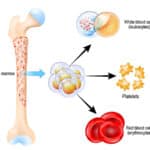





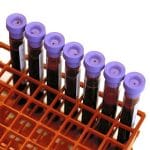

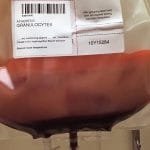
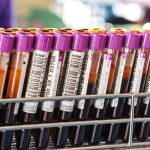
Thanks Dr. Chaffin for inviting Dr. Haspel to speak on this controversial topic. It is refreshing to hear someone advocate to dissect the papers that are published on LTOWB instead of repeating the mantra that “Whole blood is better”. There are nuances to the use of this product and areas where it may be useful, but it should be incorporated carefully into one’s inventory if at all. The risks of this product must be evaluated as well (and should be clearly stated in the articles on use of this product). As the evidence accumulates on this topic in the future, the pendulum may swing one way or the other. We also need to keep in mind benefits and risks to all patient populations.
Thank you for such a great episode! I am new to Trauma on the Blood Bank side and I was feeling frustrated by unknowns regarding the safety of large volumes of ABO incompatible plasma in these products when patients get up to 10 units.
I of course agree that you have to save the patient’s life for them to have a problem after the fact, but we don’t want them to have unnecessary problems after the fact either.
If there’s been any updates in the year and a half since you guys posted this I’d be super interested! I have been trying to sus out how to switch back to the patient’s type safely and am getting tons of conflicting opinions.
Some say switch back the second the type is known and others are worried about patients whose total plasma volume has been largely replaced with Group O.
AABB and CAP both have standards now that require that some kind of limit on number of units be stipulated in your policies, but they don’t say what the limit is. Every facility is free to do whatever they want right, which I sort of get since there’s not that much research on adverse events. But if that’s the case, why add those standards?
Thank you for all that you do educating the world about blood bank topics. I recommend your site to all of the students who come through, laboratorians and physicians alike.
I would just say that since this episode was released, there has been more and more movement toward LTOWB becoming standard in trauma settings, but not a ton in terms of standardizing some things around its use such as what to do with the blood type. You are correct, there are some standards, but there is a TON of grey space that is left up to the medical director of the local transfusion service. Sorry I can’t be more specific, but that’s where we are (I know it’s an unsatisfying answer!).
-Joe